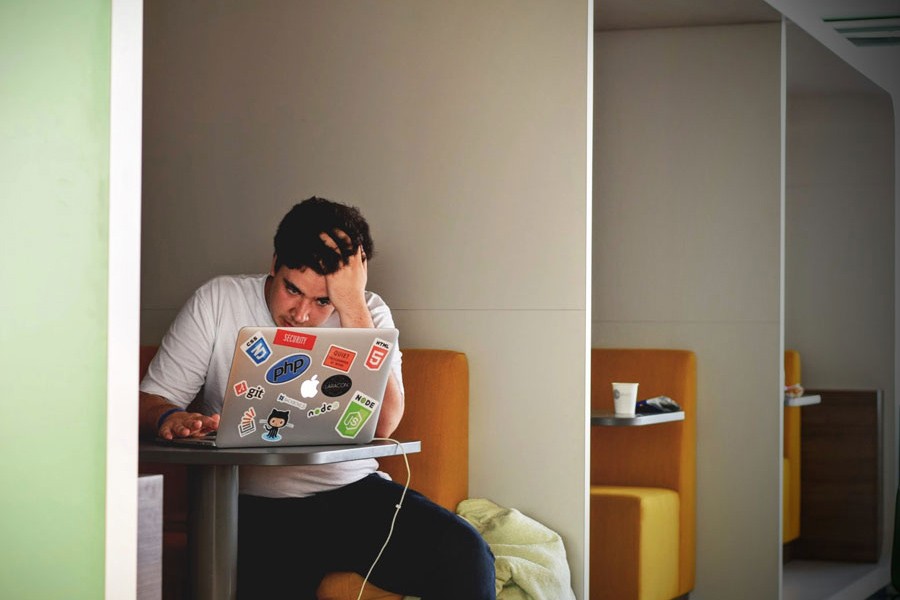Burnout is a psychological syndrome that arises in response to prolonged interpersonal and job-related stressors. Simply put, characteristics of burnout are a colossal amount of exhaustion, feelings of detachment from the job, and a sense of lack of accomplishment. To minimise the extent of psychological damage, detrimental effects on wellbeing, and diminished productivity, employees can take steps. What causes burnouts: Several factors may push an employee to the brink of burning out at work. Stunted job satisfaction, the nature of tasks, and elements of the broader organisational culture may play a role in inducing burnout symptoms in employees.
What causes burnouts: Several factors may push an employee to the brink of burning out at work. Stunted job satisfaction, the nature of tasks, and elements of the broader organisational culture may play a role in inducing burnout symptoms in employees.
"Absence of person-role fit caused me the most stress," says an employee working for a reputed telecom company in Dhaka, wishing to remain anonymous. "I applied for a position in the tech department but they placed me in HR for a role I was not interested in. Performing a job that I did not find fulfilling caused stress to build up and it eventually led me to be unmotivated and overwhelmed."
Similarly, unrealistic goal-setting practices, lack of recognition for work, and norms that inhibit individual employees' scopes of achieving personal growth can cause job dissatisfaction over time. This may lead to detachment from the job in the long run. Once the set of reasons for employees' burning out is outlined, the management and relevant stakeholders can work on addressing this issue by improvising their strategies.
Prioritising self-care: We often forget that self-care is as important as work itself. Mehran Khalid Afif, a mental health professional at BRAC Institute of Educational Development and Moshal Mental Health, emphasises the necessity of taking frequent breaks and engaging in self-care.
"From a cultural standpoint, young professionals have always viewed self-care as a means to an end - the end usually being enhanced productivity at work. Many have been conditioned not to acknowledge the importance of self-care and even fall prey to inherent guilt when they do things for themselves," he says.
This inherent guilt makes employees subscribe to the notion that the opposite of self-care is taking care of something or someone else -- which, in the case of many employees -- may be the organisation. "However, the opposite of engaging in self-care is simply not engaging in self-care. Once employees realise this fallacy, the employees would feel less guilty about taking breaks which would lessen the probability of them experiencing burnout symptoms," he adds.
Designating break time: There is a huge difference between procrastinating and taking time off on a designated day. Many professionals have the tendency to label procrastination as a break because we do not get any work done while procrastinating. However, the outcome of choosing to consciously take a break on a designated day is very different from that of procrastinating. The former makes us feel rejuvenated while the latter makes us feel drained. Making this distinction between breaks and not breaks makes all the difference.
As such, Sonnentag, Kuttler and Fritz advocate complete detachment from major stressors of any kind for a fixed period to enable recovery from burnout. They define psychological detachment from work as a state of mind during a non-work time characterised by the absence of job-related activities and thoughts.
Finding customised approaches: Every employee is exposed to a distinct set of stressors in their personal and professional life, so their means of preventing burnout is different. Baha Uddin Khan, the product specialist at Intelligent Machines, makes a detailed work plan ahead of time to keep his schedule organised in order to prevent burnout. This helps him create a boundary between core hours when he can work without interruption and his leisure hours. He says, "I usually try to plan my everyday schedule in a way that lets me have at least two to three hours for myself throughout the day. During that free time, I usually watch a movie, play games, or hang out with my friends. Additionally, I go on a trip outside Dhaka every three or four months to escape the monotonous city life. This helps me a lot to deal with stress and prevent burnout."
Now the question may arise: how do we know what exact measure would work for us? The answer to this dilemma is that it varies from one person to another; one is supposed to find out what works for them through a trial-and-error approach.
Apart from taking designated breaks from stressors and prioritising self-care, everyone should keep their broader mental health in check. One should seek to find out if the symptoms they have are exclusively burnout-related or if they are symptomatic of a bigger issue. Consulting mental health professionals regarding this would help equip one with the ability to tackle personal and job-related stressors in a healthy manner.
Noshin Nawar is a fourth-year BBA student at IBA, Dhaka University.
[email protected]


